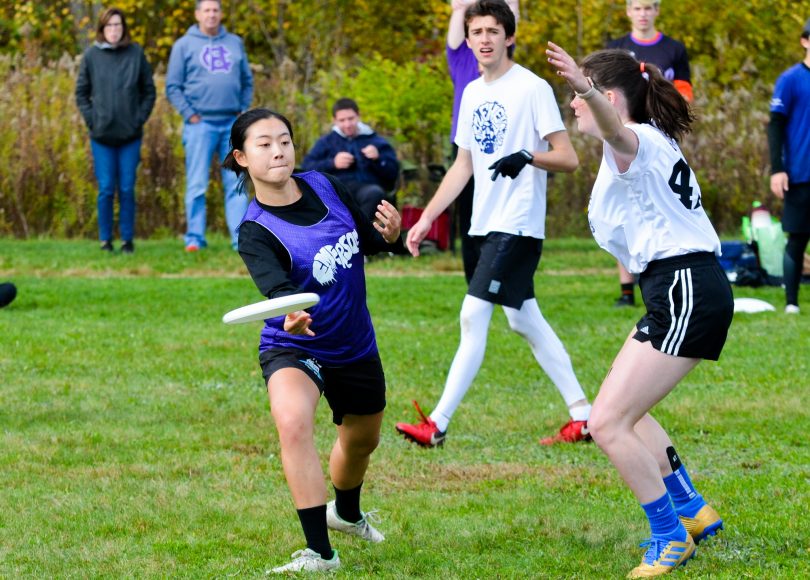By YiKai Luo
Boston University News Service
Two years ago, Youran Cai joined Emerson College’s Ultimate Frisbee team with ambition and passion. She dreamed of someday leading the team to victory in national tournaments. However, during the first game of the season, Cai experienced culture shock when her captain told her to wear shiny skirts for pre-game cheers.
Cai felt ashamed and uncomfortable in flashy makeup and revealing clothing. Meanwhile, her teammates confidently emerged to hip-hop music, dressed in the brilliant skirts.
Raised in a conservative Eastern culture with an introverted personality, Cai described herself as an alien amongst the team.
“I had no choice but to put on these skirts I dislike because I want to be accepted by my teammates and get along with them,” Cai said. “I kept encouraging myself that these are cultural rituals diverse from my origin nation.”
Cai was also frustrated to find that her skills were only at an intermediate level. During the first two seasons, Cai was rarely the first choice of her coaches’ starting line-up. This never happened to her in China. She realized she was no longer the best player on the team.
“My teammates are faster, physically stronger and show better reactions than me on the field,” Cai said. “Being benched from games made me feel stressed and depressed. I lost my aggressive mindset in sports because I was afraid of making turnovers during games and being kicked out from the team.”
Cai felt inferior and isolated herself from the outside world. She resisted help from others and finally quit the team.
Days after Cai’s final training session, her senior captain Kim, a Korean Ultimate cutter, knocked on her apartment door. Without saying a word, Kim hugged Cai because she missed her. That night, Kim made kimchi stew and Chinese rice dumplings for Cai. The two girls gathered around the fireplace and had an open conversation.
“Kim was born in Korea, so we are both international athletes on the team. And we share common social backgrounds,” Cai said as she showed their pictures on the wall. “She encouraged me to speak up about the things I felt uncomfortable with and those negative feelings inside my heart.”
Kim’s advice helped Cai realize the importance of talking about her feelings. She started using her family and friends as a stress buffer instead of turning to harmful coping mechanisms. However, since she is an introvert, Cai still avoided bonding activities which grew the distance between her and her teammates.
Things changed when Kim appointed Cai as the warm-up leader of the team. This pushed Cai out of her comfort zone and built her confidence. Cai showed her leadership during training sessions and realized there was something different about U.S. players’ mentality.
“When I played in China, I only focused on winning or losing,” Cai said. “I found that people on the Ultimate team here joined because of the passion and love they hold for Ultimate, and it was more about bonding and being a family.”
Each year, the senior players reinforce the importance of cooperation and growth together. After spending several months with the team, Cai changed her priority from winning to encouraging everyone to do their best, regardless of the end result.
After being chosen as a co-captain of the team this year, Cai focused her vision on a larger scale, carrying on the duty of empowering women players and promoting gender equality on the field. She did not want her female teammates to repeat her mistakes, so she encouraged them to stand up for themselves and express any concerns.
“It does not matter whether female players are saying things right or wrong in a team. If women players feel uncomfortable or are dissatisfied about something, we should not accept rejection,” Cai said.
Cai brought what she learned from China to Emerson, mixing Eastern and Western tactics to design a unique team training system.
“When players see a non-white captain on the field and learn new drills from me,” Cai said. “They feel more diverse, willing to accept differences and changes.”
Cai is a role model. She stands for gender equality in co-ed sports but she acknowledges that there is still a long way to go.
“I feel grateful being a co-captain, but I still think women are losing the power of discourse in sports,” Cai said. “And I want to help more females interested in Ultimate participate in the sport with comfort and warmth.”
“If I can do it, everyone can do it,” Cai said, smiling with medals shining on her neck.





